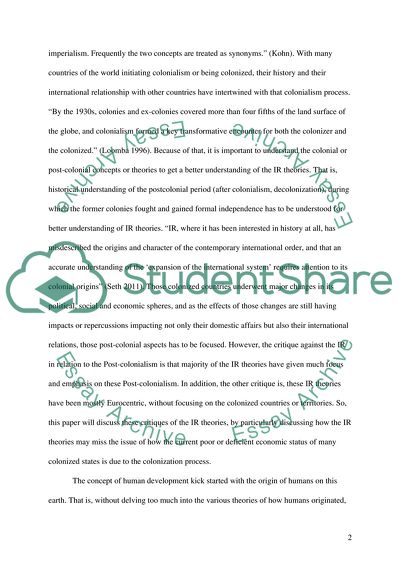Cite this document
(Post Colonial Critique of International Relations Research Paper, n.d.)
Post Colonial Critique of International Relations Research Paper. Retrieved from https://studentshare.org/history/1770760-what-is-a-post-colonial-critique-in-international-relations
Post Colonial Critique of International Relations Research Paper. Retrieved from https://studentshare.org/history/1770760-what-is-a-post-colonial-critique-in-international-relations
(Post Colonial Critique of International Relations Research Paper)
Post Colonial Critique of International Relations Research Paper. https://studentshare.org/history/1770760-what-is-a-post-colonial-critique-in-international-relations.
Post Colonial Critique of International Relations Research Paper. https://studentshare.org/history/1770760-what-is-a-post-colonial-critique-in-international-relations.
“Post Colonial Critique of International Relations Research Paper”, n.d. https://studentshare.org/history/1770760-what-is-a-post-colonial-critique-in-international-relations.


